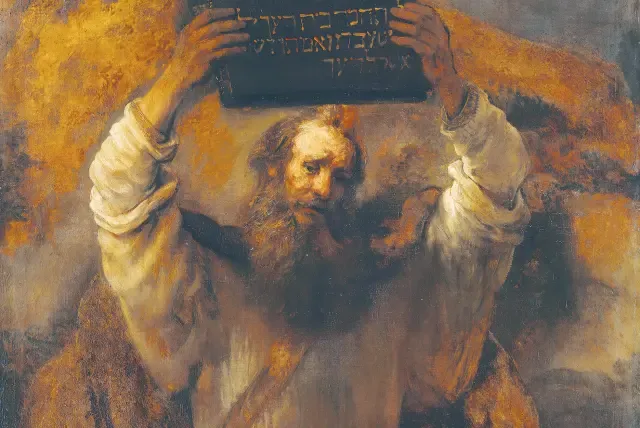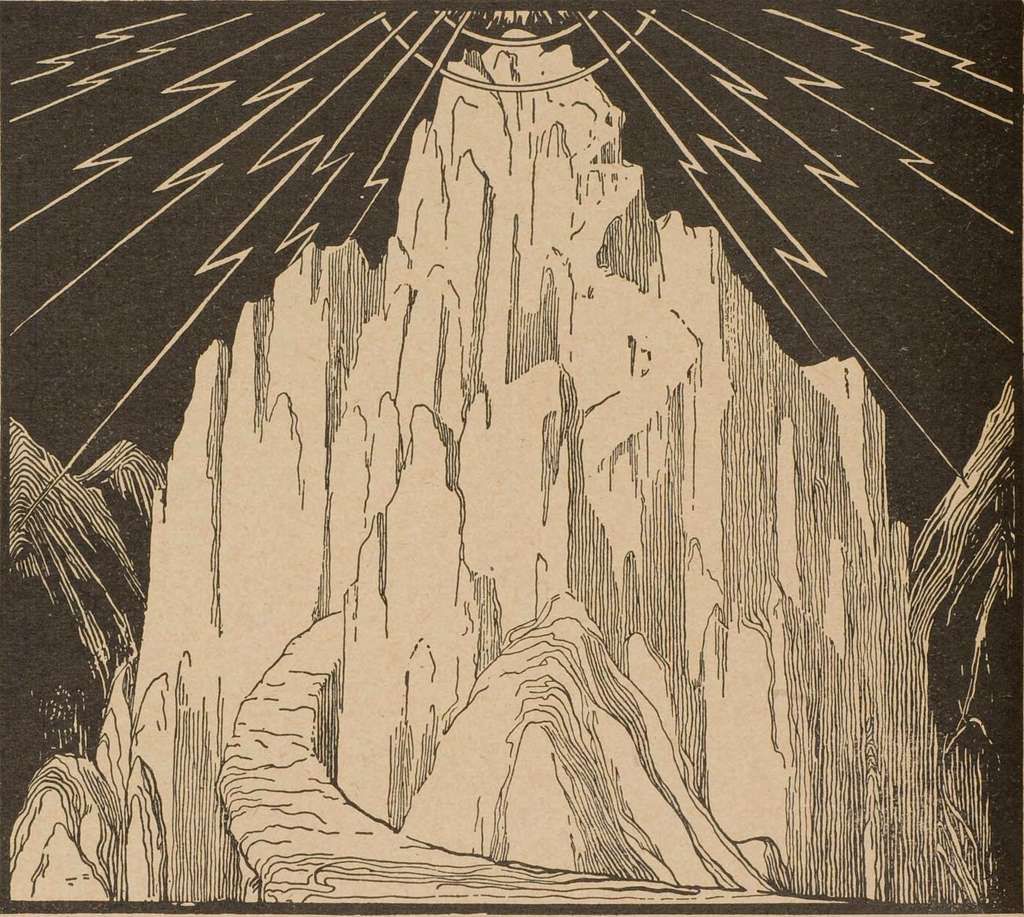Identity crisis of a great patriarch
Moses's insecurity when God calls him—
I’m in a Bible reading plan that has me in the midst of the patriarchs of our faith—right now it’s Moses. What I’m most struck by this go around is Moses’s insecurity when God calls him, which undoubtedly comes from his identity issues he has shouldered his whole life.
Wild intersectionality
By blood, he’s a Hebrew—a people group living in slavery for the past 400 years—yet Moses is residing under Pharoah’s roof, counted as the grandson of an Egyptian King. That’s a wild intersection. As his young life plays out, he is tossed from one camp to another and then fleeing in fear for his life to another. His roots are obscure, leaving him to cry out once the Lord calls him through the burning bush, “Who am I that I should go to Pharaoh…?” (Ex. 3:11 ESV).
I have two observations surrounding this question from Moses, and both make me smile and shake my head in relief that Moses, of all people, struggled with making meaning of who he was supposed to be in life.
The first is this: In verse 2 God appears to him with a grand, sweeping declaration of who He is, and it’s powerful. For six verses God declares who He is, who Moses came from, what He sees and hears in Israel, what He plans to do about it, and how He wants to use Moses. It is a sequence that needs a rumbling soundtrack behind it.
But does Moses feel its cadence and rhythm? Do his eyes well up and his fists clench in an involuntary act of bravery and movement at this call to battle from God Himself? Sadly, no. Instead, Moses did what most of us do on an hourly basis—brings the grandeur of God’s plan down to himself.
It’s so slight, so habitual of a thought chain that it’s easy to miss. He doesn’t acknowledge the Lord at all. His instant reaction is to fall back on the insecurity of his identity. “Who am I…?” It’s a real question—I won’t minimize it. But God certainly doesn’t maximize it or even entertain it.
Grappling with personal limitations
Part of it could be that he is humbly asking what worth is in him that God Almighty would summon him—much like what we see in Isaiah 6 and Jeremiah 1. But given the pattern of questions and hesitations Moses poses in the verses after, even with the moniker of “the humblest man to ever live,” he is seriously afflicted with only his own limitations.
And God’s response? Verse 12 (the very next verse), “But I will be with you…” Moses looks to God for some sort of affirmation, but God steps over that dead question to remind him of who He is and what He is doing.
We do this all the time.
Maybe God calls you to something simple like engaging a neighbor to offer hospitality, and you let thoughts of a messy house or not enough in common take over. Or maybe God calls you to something big like delivering people in another country from the slavery of sin, but you let your current community or job status keep you grounded here. God calls all of us to daily repentance and fellowship with Him—we can certainly forget our true dependency on Him in that context and dismiss those mandates.
God's form of affirmation
I’m not aiming to beat Moses up—rather, I draw great encouragement from him. He gets seven verses of airtime in the faith chapter of Hebrews 11 for a reason.
We know which identity he ended up walking in: “By faith Moses, when he was grown up, refused to be called the son of Pharaoh’s daughter, choosing rather to be mistreated with the people of God than to enjoy the fleeting pleasures of sin. He considered the reproach of Christ greater wealth than the treasures of Egypt, for he was looking to the reward” (24-26).
But God didn’t point this out in Moses. He didn’t pat his head or try to secure his humanly esteem. He doesn’t spur him on with visions of how Moses will be remembered in future generations. He takes Moses out of the equation altogether.
God reminded him consistently, throughout Exodus to Deuteronomy, that He was the LORD God who redeemed them from slavery. He brought them to a broad place and set them apart from the nations. In Exodus 6 God gives Moses promises in verbs: I will bring you out, I will deliver you from slavery, I will redeem you, I will take you to be my people, I will be your God.
Too much of the self
And the only other people who seek to know their placement in life are the ones who look at a group picture and first find themselves—which is everyone. Everyone does that. We want to know where we are and what we look like.
We adopt this same principle in our work and comparing it with others. We easily fall into gauging how everyone around us reacts and responds to us in order to decipher our social position in this world. And, I’m afraid to admit, is something believers even do with scripture.
Again, it’s slight. And it’s not sinful when done in its place. But how often do we take more comfort from meditating on who we are in Christ rather than who Christ alone is? We love to single out the Scriptures about God giving us peace and rest, replacing our heavy burdens with His. We love to be pumped up by terms like chosen, adopted, royal priests, beloved, heirs, sons and daughters, friend, co-worker—yes! Now I can go to work and face the day because look at all these labels I can shove in my pocket, only to take out again when I am feeling tired and overwhelmed!!
Perpetually directing our attention to who we are and what our benefits entail is not dying to/denying the self. We must look up toward the heavens rather than straight in the mirror.
Answer not according to your own nature
This undoubtedly is how God instructs Moses. Instead, God speaks directly to who Moses is because of who God is. We are called to meditate on the Chooser, the Adopter, the Ordainer, the Father, the King. God instructs Israel again and again to tell the next generation of His works in saving them from slavery and sin. We are called to recount the deeds of the LORD all throughout Scripture—just read the Psalms (esp. 9, 26, 40, 64, 66, 73, 106, 118, 139).
We can answer our calling from the LORD and walk in daily obedience with a bold, sure, steady yes—not because of our own nature and answer to the question “Who am I?”, but because of God’s nature and his answer of “I AM” (Exodus 3:14).
Worshiper, wife, mom—with the help of the Lord, this is my hierarchy of work. Beyond this I homeschool the girls and hold down a staff position at Zionsville Fellowship in Zionsville, Indiana. I read, write, do yoga, cook, and practice thinking pure and lovely things.






